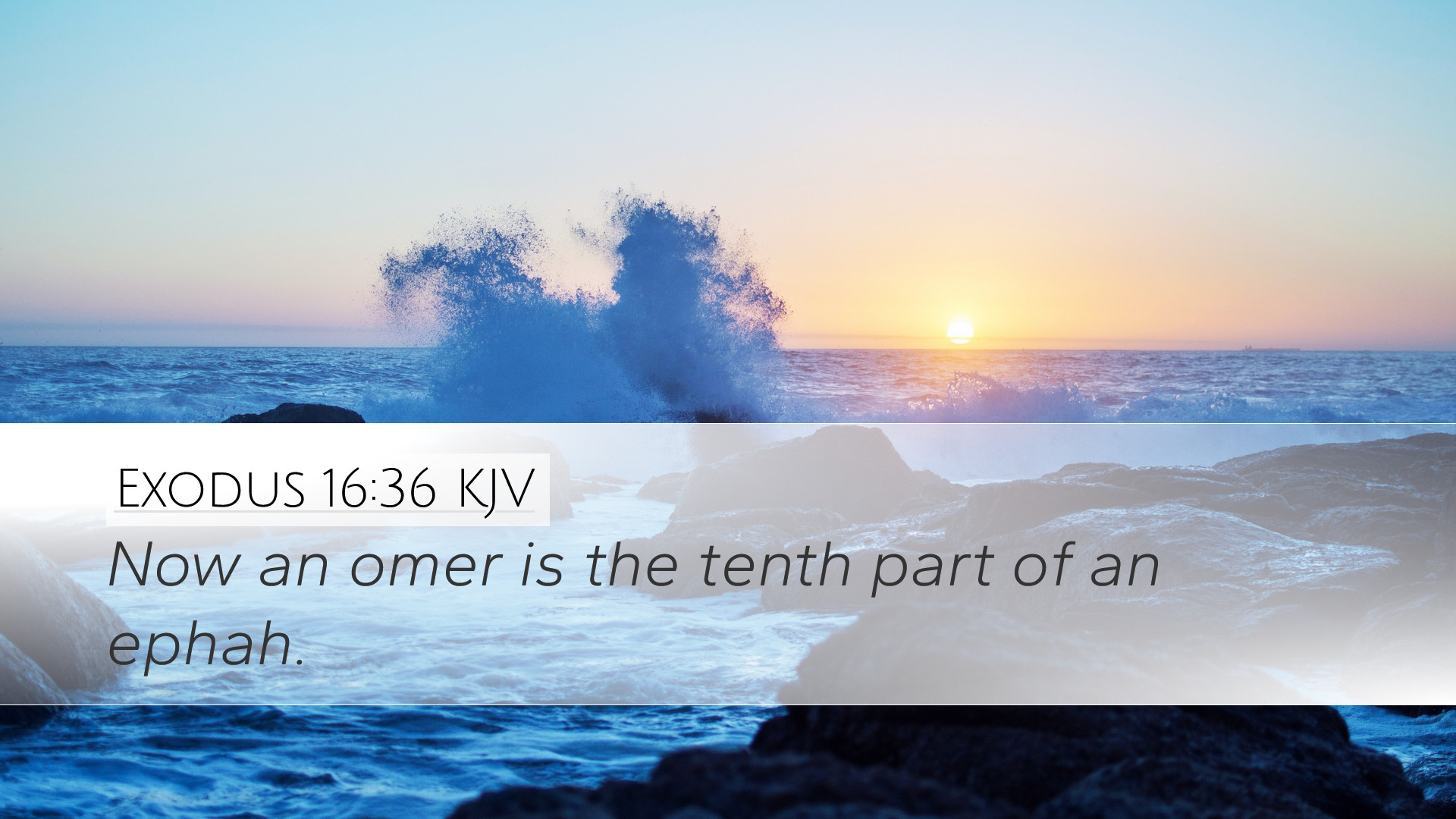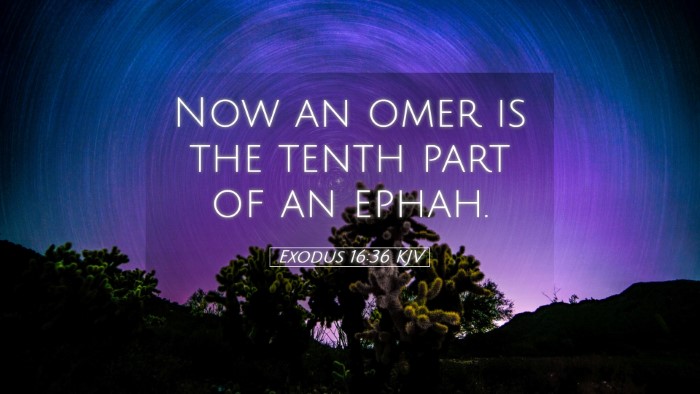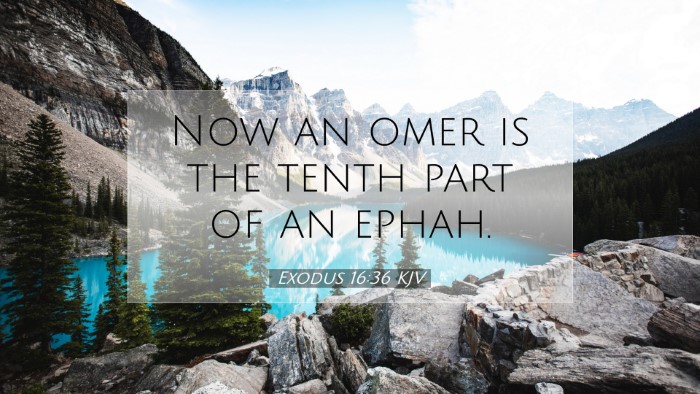Commentary on Exodus 16:36
Exodus 16:36 states: "Now an omer is the tenth part of an ephah." This verse provides a critical understanding of the measurement system used in ancient Israel and also serves as a bridge to deeper theological and practical insights regarding God's provision, community, and the nature of obedience.
Contextual Background
The journey of the Israelites in the wilderness is marked by God's miraculous provision of manna. The measurement mentioned, an omer, as a unit of weight and capacity, offers understanding not just of physical sustenance but also reflects spiritual nourishment. The Israelites were learning to depend on God for their daily needs, a theme that resonates throughout Scripture.
Theological Insights
- Divine Provision: The measurement, omer, signifies God's careful provision for His people. As noted by Matthew Henry, this emphasizes God's plan where He ensures that each person received enough nourishment daily, teaching them reliance on His daily supply.
- Community and Sharing: This division of manna by specific measurement promotes communal sharing and equality among the Israelites. Albert Barnes emphasizes that no individual was to hoard more than their share, fostering bonds of community and encouraging generosity among the people.
- Obedience to God's Instructions: The command to gather a specific amount illustrates the importance of obedience. Adam Clarke notes that adherence to God’s commands, even in trivial matters like gathering food, cultivates trust in His greater plans.
Practical Applications
Understanding the significance of the omer in Exodus 16:36 goes beyond historical interest; it reinforces key lessons for modern believers:
- Trust in God's Timing: Just as the Israelites learned to pick up their daily provisions, believers today are called to trust in God's timing and provision for their needs.
- Balance of Work and Wait: The act of gathering reflects both action and faith. We are to work, yet our ultimate trust lies in God’s ability to provide.
- Community Care: The distribution of food was not just an individual act but a community response, highlighting the importance of caring for one another’s needs within the body of Christ.
Conclusion
Exodus 16:36, while a seemingly straightforward notation about measurements, encapsulates profound truths about God’s character, the nature of obedience, and communal responsibility. For pastors, students, theologians, and scholars, this verse serves as a reminder that even the simplest details in Scripture can offer rich insights into our relationship with God and one another.


